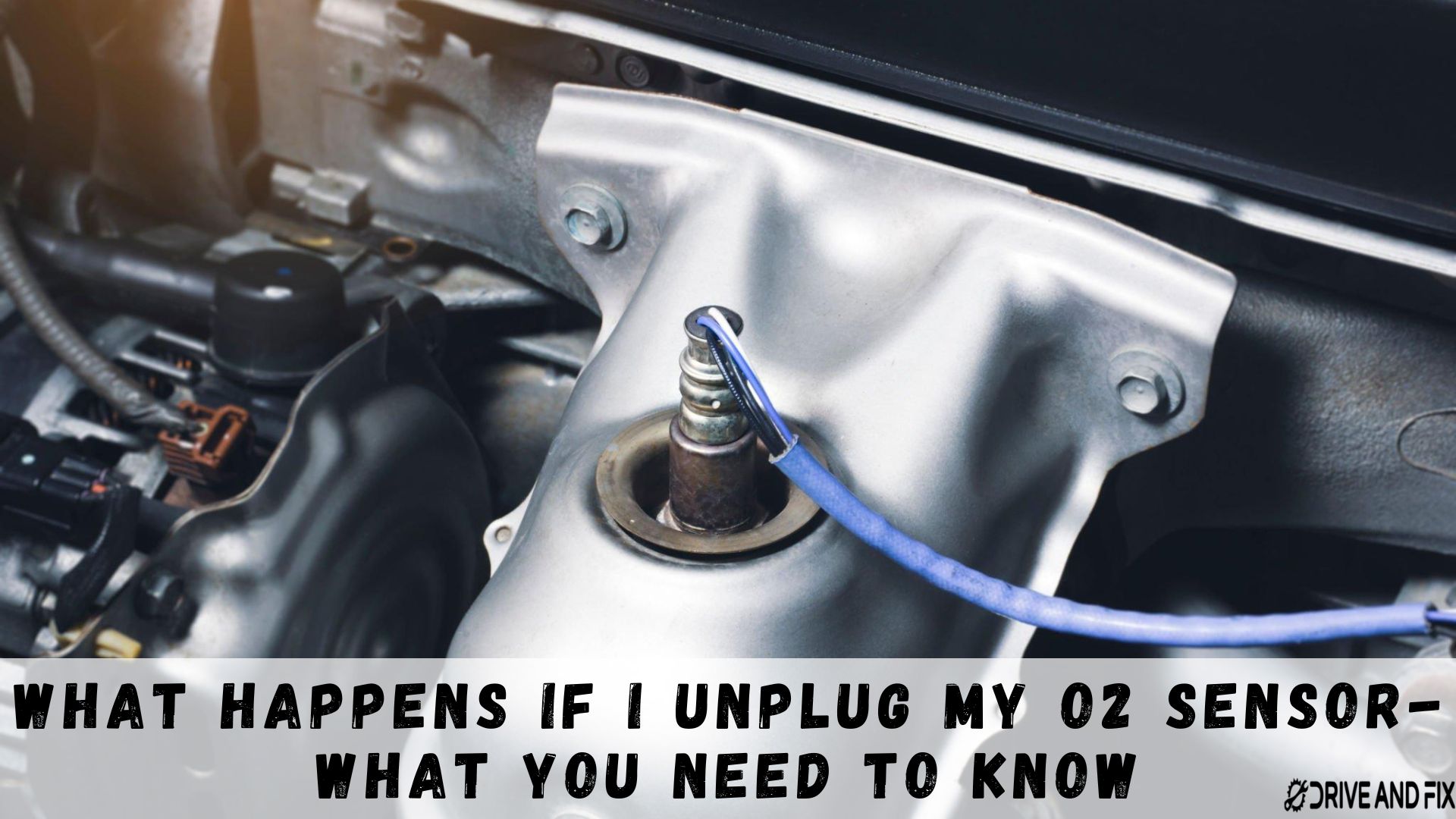Your vehicle’s oxygen (O2) sensor measures the amount of oxygen in the exhaust gas. It sends this information to the engine control module (ECM) to adjust the air-fuel mixture for optimal combustion. What Happens if I unplug my O2 sensor?
It is not advisable to open the O2 sensor unless it is absolutely necessary. Nonetheless, there are occasions when you may need to unplug the 02 sensors temporarily.
Instances When You May Need To Unplug The O2 Sensor
- Testing the O2 sensor
If you suspect your O2 sensor is malfunctioning, you may need to temporarily unplug it to test its voltage and resistance using a digital multimeter. A qualified mechanic should only do this with the necessary equipment and expertise.
- Welding near the exhaust system
If you are welding near your vehicle’s exhaust system, disconnect the O2 sensor to prevent damage to the sensor from heat or sparks.
- Engine tuning
Sometimes, you may need to temporarily disconnect the O2 sensor when tuning the engine to achieve maximum performance. However, this should only be done by an experienced tuner who knows how to adjust the air-fuel mixture manually.
What Happens If I Unplug My O2 Sensor – Potential Consequences

Decreased fuel economy
When the O2 sensor is disconnected, the engine will run in a default mode, which can result in a richer fuel mixture. This will cause your car to consume more fuel than usual, decreasing fuel economy.
Increased emissions
The ECM relies on the O2 sensor to adjust the air-fuel mixture and ensure the engine runs efficiently and cleanly. If the O2 sensor is unplugged, the engine cannot regulate the emissions properly, resulting in increased levels of harmful pollutants released into the environment.
Poor performance
The engine may not run as smoothly or efficiently as it should when the O2 sensor is disconnected. That would result in poor acceleration, reduced power, and other performance issues.
Engine damage
When the air-fuel mixture is too rich or lean, it can cause damage to the engine components, such as the catalytic converter, spark plugs, and valves. This can lead to costly repairs and even engine failure.
Triggering of fault codes
Unplugging the O2 sensor causes the engine control module (ECM) to trigger a fault code, which can result in the illumination of the check engine light and other warning lights on the dashboard. This can make it difficult to diagnose other issues affecting your vehicle.
Precautions When Unplugging 02 Sensor

If you must unplug your vehicle’s oxygen (O2) sensor, you should take a few precautions to avoid damaging the sensor, other components, or yourself. Here are some things to keep in mind:
- Turn off the engine: Ensure it is off and allow it to cool down to prevent burns from hot exhaust components.
- Wear protective gear: When working on your vehicle’s exhaust system, wear appropriate protective gear, such as heat-resistant gloves and eye protection.
- Use the right tools: Most O2 sensors have a threaded connector that you can remove with a wrench or socket. Be careful not to damage the connector or the sensor itself.
- Be mindful of the wiring: Do not damage the wiring or the connector. The wiring is often fragile and can be easily damaged.
- Store the O2 sensor safely: Once you have unplugged the O2 sensor, store it in a safe place where it won’t be damaged or lost. Please keep it clean and free of dirt, dust, and other contaminants.
- Reconnect the sensor properly: When you are ready to reconnect the O2 sensor, ensure it is appropriate to avoid damaging the wiring or the sensor itself. Use the proper torque specifications and thread sealant if necessary.
Can I Just Unplug My 02 Sensor
While it is possible to unplug your oxygen sensor, it is not recommended.
Unplugging the O2 sensor can cause issues such as decreased fuel economy, increased emissions, engine damage, and poor performance.
Furthermore, unplugging the O2 sensor may trigger a fault code in the engine control module (ECM), which will turn on the “check engine” light on your dashboard. This will alert you to a problem with your vehicle, and it may even prevent you from passing emissions testing if you live in an area that requires it.
Final Thoughts
What happens if I unplug my O2 Sensor? If you consider unplugging your O2 sensor, understand the potential consequences and risks. For diagnosis or troubleshooting issues, consult a qualified mechanic or technician who can properly diagnose and fix the problem.
Suppose it is for performance or tuning purposes. In that case, you need the knowledge and experience to adjust the air-fuel mixture manually or install a performance-tuned ECU that can compensate for the absence of the O2 sensor.
It’s not recommended to unplug the O2 sensor unless it’s necessary and you have the knowledge and experience to do so safely. Always consult a qualified mechanic or technician who can guide you and help you make an informed decision.
You may also be interested in:
The Essential Guide to Blown AC Fuse In Car Symptoms
Is Xzilon Worth It? Explained By Experts
Why Brake and Battery Light On After Replacing Alternator?
Passenger Seat Stuck In Recline – Causes, Troubleshooting, And Repairs


